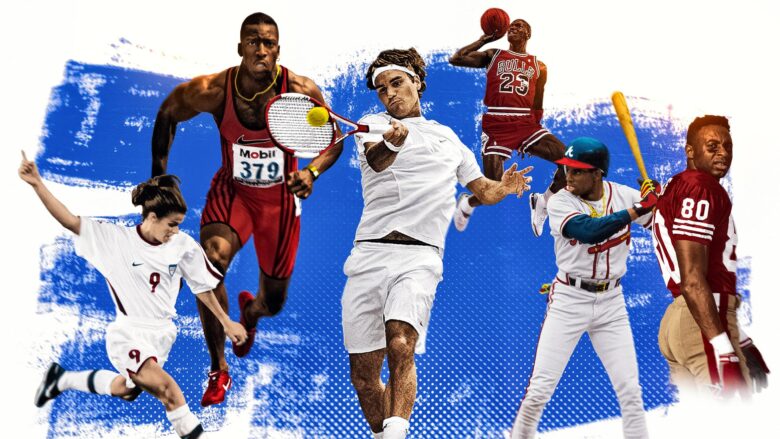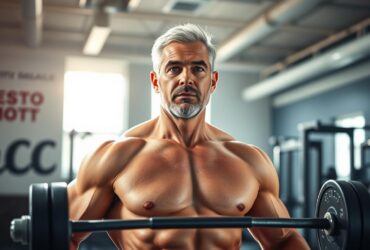Unveiling the Power Within: Testosterone Therapy for Athletes
In the dynamic world of athletics, where milliseconds can distinguish between victory and defeat, the pursuit of peak performance often leads athletes to explore various avenues of enhancement. Among these, testosterone therapy has emerged as a controversial beacon, promising to elevate strength, endurance, and recovery. As the conversation around hormones, health, and ethics continues to evolve, the benefits—and risks—of testosterone therapy demand a closer examination. This article delves into the science behind testosterone’s role in athletic performance, sheds light on the implications of its therapeutic use, and invites a critical dialogue on what it means to push the boundaries of human potential. Join us as we navigate the intricate interplay of fitness, biology, and the quest for excellence within the realm of sports.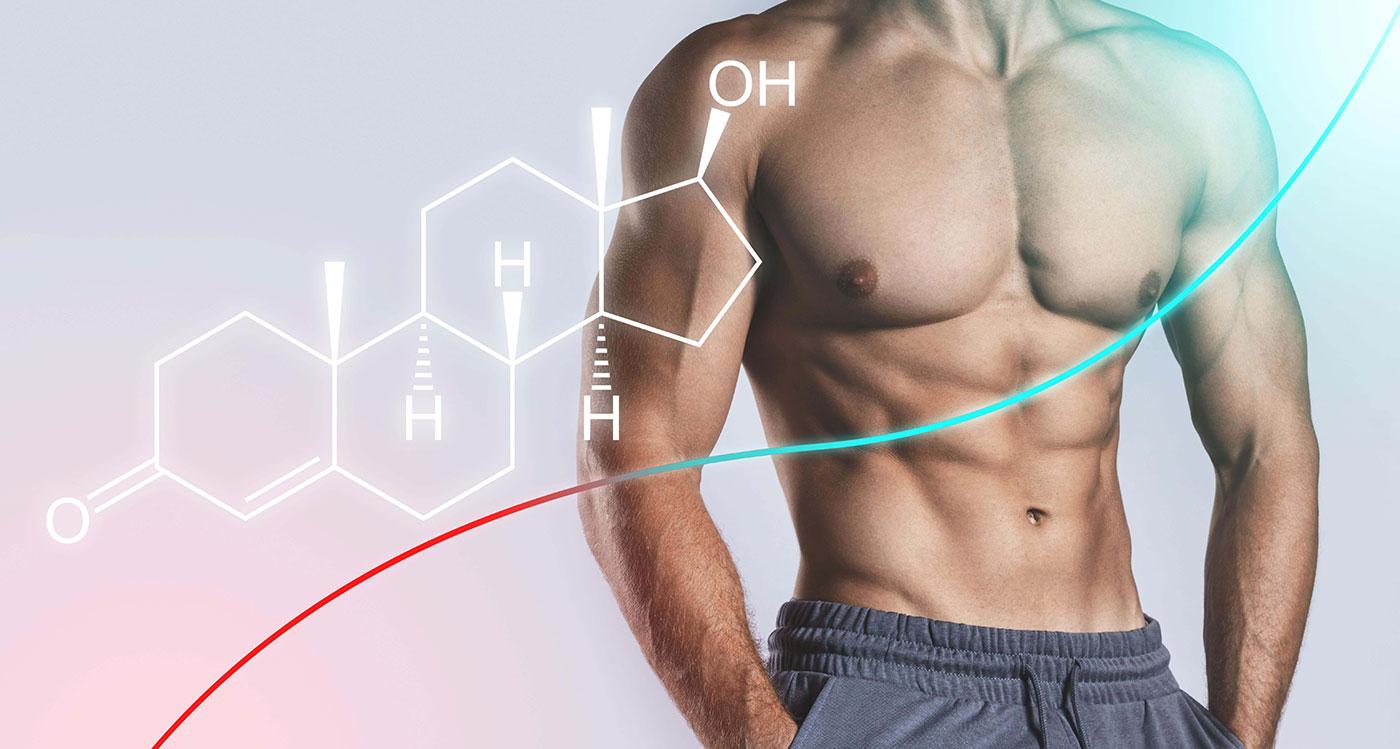
The Role of Testosterone in Athletic Performance
Testosterone, often referred to as the “male hormone,” plays a pivotal role in athletic performance by influencing various physiological processes. It is primarily responsible for enhancing muscle mass, strength, and endurance, making it a critical factor for athletes across different sports disciplines. The hormone impacts protein synthesis, which is essential for muscle repair and growth. Additionally, testosterone influences bone density, promoting a robust skeletal structure necessary for demanding physical activities. Athletes who maintain optimal testosterone levels often report improved recovery times and increased overall stamina.
Research indicates that testosterone therapy can lead to significant enhancements in athletic performance, particularly when used responsibly and under medical supervision. The benefits of testosterone therapy for athletes may include:
- Improved muscle strength and power.
- Enhanced energy levels and endurance.
- Faster recovery from intense physical exertion.
- Increased motivation and focus during training.
However, it’s essential to consider the ethical implications and potential side effects of testosterone supplementation. While some athletes may experience substantial gains, the risk of hormonal imbalances and the potential for long-term health consequences must be carefully weighed. Ultimately, a balanced approach to training, nutrition, and hormonal health is crucial for sustaining peak athletic performance.
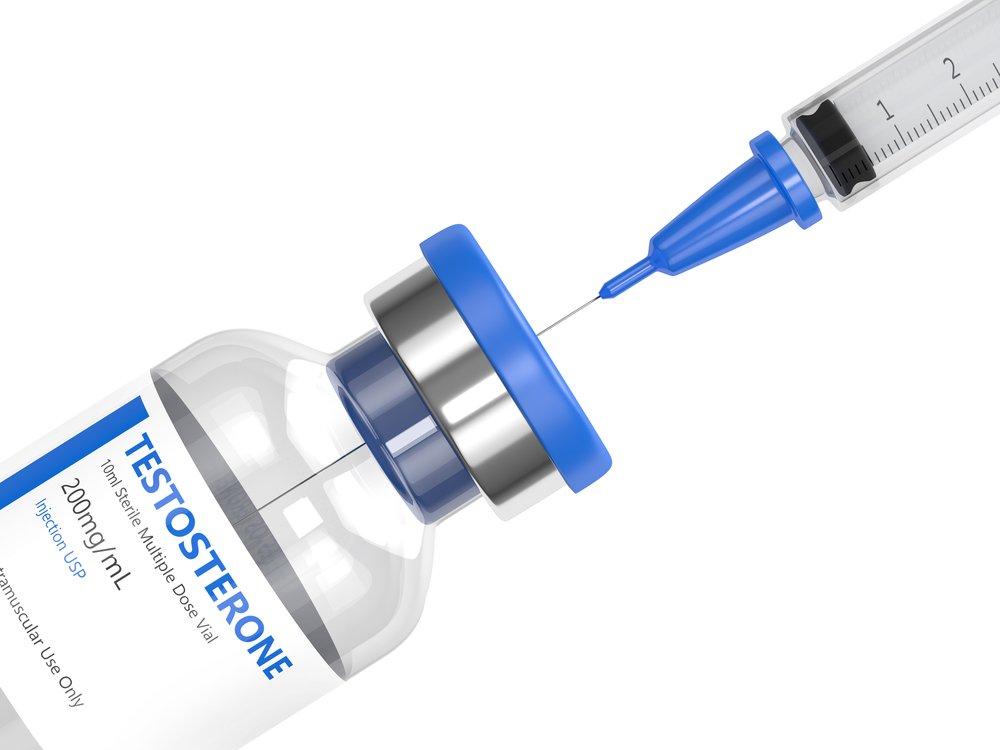
Understanding the Benefits and Risks of Testosterone Therapy
Testosterone therapy can bring a multitude of advantages for athletes seeking to enhance their performance, recover from injuries, or simply maintain optimal health. Some of the notable benefits include:
- Increased Muscle Mass: Testosterone plays a crucial role in protein synthesis, which can lead to greater muscle growth and strength.
- Improved Recovery: Enhanced hormonal balance can facilitate quicker recovery times after strenuous workouts.
- Boosted Energy Levels: Many athletes report elevated energy levels, enabling them to train harder and for longer durations.
- Enhanced Mood and Concentration: Balanced testosterone can contribute to improved mental clarity, focus, and overall mood stability.
However, the use of testosterone therapy is not without its risks, which athletes must carefully consider. Potential downsides include:
- Hormonal Imbalance: Overuse can lead to elevated levels, which may cause mood swings and irritability.
- Cardiovascular Issues: There is evidence suggesting a possible increased risk of heart problems associated with long-term therapy.
- Liver Damage: Certain forms of testosterone can strain the liver if not monitored properly.
- Dependency and Withdrawal: Athletes may develop a psychological dependency on the therapy, facing withdrawal symptoms when not using it.
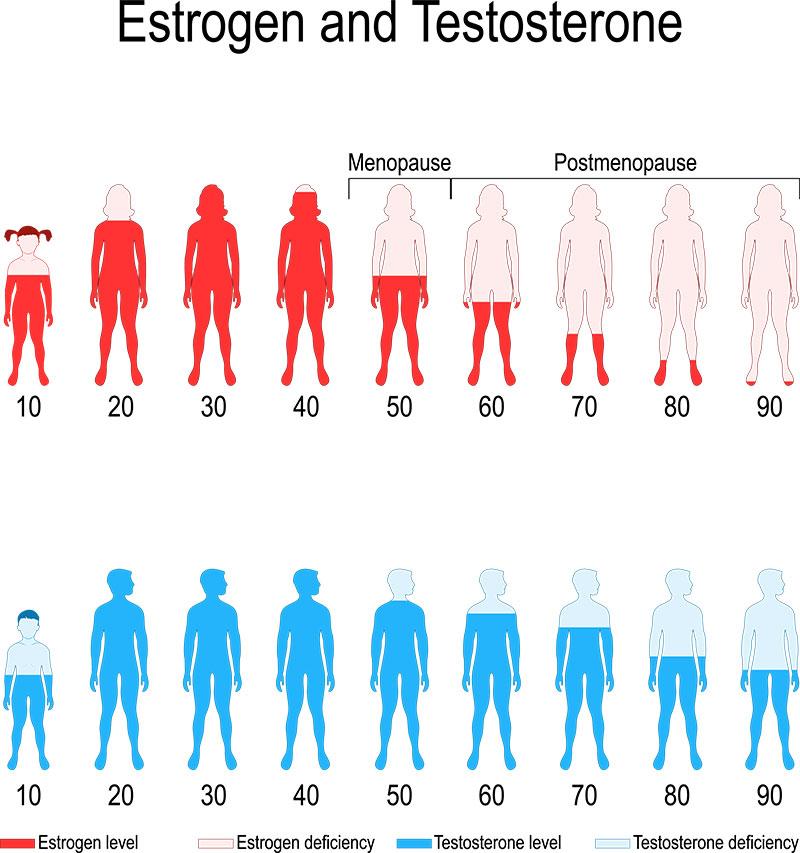
Navigating the Legal and Ethical Implications for Athletes
As athletes increasingly turn to testosterone therapy as a means to enhance performance, they unwittingly step into a complex web of legal and ethical considerations. Firstly, the World Anti-Doping Agency (WADA) has stringent regulations surrounding the use of testosterone, categorizing it as a prohibited substance. Athletes must navigate the nuances of these regulations to avoid severe penalties, including disqualification from competitions and tarnished reputations. Additionally, the therapeutic use exemption (TUE) process offers a potential legal pathway for those with legitimate medical needs, but obtaining a TUE requires thorough documentation and justification, which can be a daunting task.
Ethically, the debate surrounding the use of testosterone therapy is fraught with gray areas. Many argue that it blurs the line between legitimate medical treatment and performance enhancement. Consider the following points of contention:
- Level Playing Field: Does testosterone therapy create an uneven competitive landscape?
- Health Risks: Are the potential health risks associated with long-term use being adequately communicated?
- Social Responsibility: What is the athlete’s responsibility to their peers and the integrity of their sport?
To further clarify this complex issue, the table below summarizes the key legal and ethical considerations:
| Aspect | Legal Implications | Ethical Considerations |
|---|---|---|
| Usage | Prohibited without TUE | Potential for unfair advantage |
| Health | Need for medical documentation | Informed consent of health risks |
| Reputation | Consequences for violations | Impact on sports integrity |
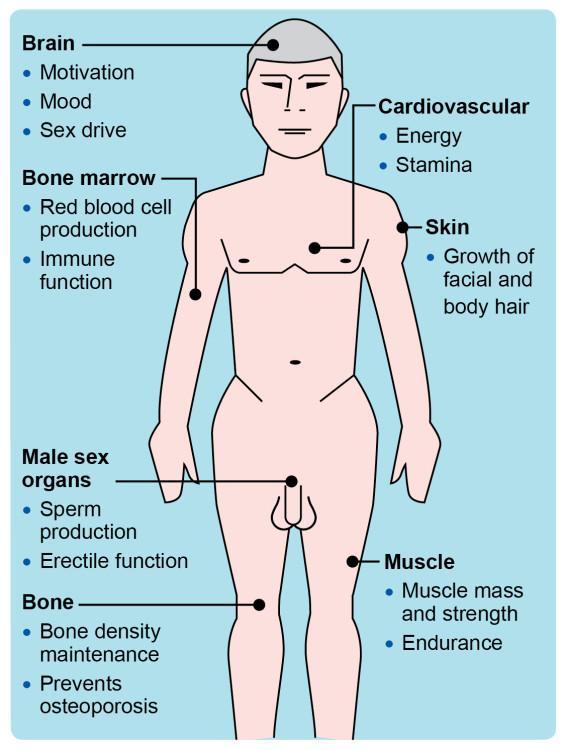
Signs of Low Testosterone and When to Seek Therapy
Low testosterone can significantly impact not only athletic performance but also overall well-being. Recognizing the subtle signs that might indicate a deficiency is crucial for athletes striving to maintain peak physical condition. Common symptoms to watch for include:
- Fatigue or decreased energy levels: A noticeable drop in energy can hinder workouts and performance.
- Reduced strength or endurance: Difficulty in lifting weights or sustaining stamina over training sessions can be a telling sign.
- Changes in mood: Increased irritability, depression, or anxiety can correlate with hormonal imbalances.
- Decreased libido: A significant reduction in sexual interest may also indicate low testosterone levels.
If you observe these symptoms persisting, it’s essential to consult a healthcare professional. They can provide insight on testosterone levels through blood tests and discuss potential therapy options. Moreover, it’s advisable to seek therapy if:
| Condition | Recommendation |
|---|---|
| Severe fatigue | Consider medical evaluation. |
| Significant muscle loss | Consult with a specialist. |
| Emotional instability | Seek professional support. |
| Persistent low libido | Discuss therapy options. |
Choosing the Right Testosterone Replacement Therapy Options
When considering testosterone replacement therapy (TRT), athletes must evaluate various options that align with their unique needs and performance goals. Testosterone can be administered in numerous forms, each with distinct benefits and drawbacks. Common forms of TRT include:
- Injectable Testosterone: Available in ester forms such as testosterone enanthate or testosterone cypionate, these injectables are known for their fast-acting effects and potency.
- Transdermal Patches & Gels: Applying testosterone through the skin allows for a steady release into the bloodstream, enhancing convenience and reducing the need for needles.
- Pellets: Small pellets inserted beneath the skin provide a long-term release of testosterone, usually lasting three to six months.
Choosing the best option often depends on personal preference, medical history, and lifestyle considerations. Athletes should weigh the potential for performance enhancement against the risk of side effects and the legality of certain treatments within their respective sports. Furthermore, consultations with healthcare professionals specializing in hormone therapy are essential to tailor the treatment plan to specific needs. To aid in this decision-making process, the following table illustrates the factors that athletes should consider:
| Therapy Option | Administration Method | Duration of Effect | Potential Side Effects |
|---|---|---|---|
| Injectable | Intramuscular | 1-2 weeks | Injection site pain, mood swings |
| Patches/Gels | Topical | Daily | Skin irritation, transfer risk |
| Pellets | Subcutaneous | 3-6 months | Infection risk, pellet extrusion |
Monitoring and Adjusting Therapy for Optimal Results
To ensure the effectiveness and safety of testosterone therapy, it is crucial to regularly monitor various parameters that reflect an athlete’s health and performance. Key markers include:
- Testosterone Levels: Periodic blood tests should be conducted to assess serum testosterone levels, ensuring they remain within an optimal range.
- Estradiol Levels: Monitoring estradiol helps to prevent potential side effects associated with high estrogen levels, which can occur during testosterone therapy.
- Hematocrit Levels: Elevated hematocrit is a concern, as it can increase the risk of cardiovascular issues. Regular checks can help mitigate this risk.
- Liver Function Tests: Vigilant assessment of liver enzymes is essential, particularly for those on injectable or oral testosterone.
Adjustments to therapy may be necessary based on monitoring results and individual progress. Consider the following strategies for fine-tuning treatment:
- Dosage Adjustments: If testosterone levels are too high or too low, healthcare providers may recommend altering the dosage to achieve a balanced state.
- Type of Therapy: Switching between different delivery methods (e.g., injections, patches, gels) can help tailor treatment to an athlete’s lifestyle and preferences.
- Supplemental Therapies: Incorporating other supportive treatments, such as aromatase inhibitors or HCG, can enhance the overall effectiveness of testosterone therapy.
Holistic Approaches to Enhance Testosterone Naturally
Enhancing testosterone levels naturally can be a game changer for athletes seeking to boost their performance without the potential downsides of synthetic therapies. A multifaceted approach is key, focusing on nutrition, exercise, and lifestyle changes. Incorporating nutrient-dense foods can significantly impact testosterone levels. Consider including the following in your daily diet:
- Zinc-rich foods: Oysters, red meat, and pumpkin seeds
- Healthy fats: Avocados, nuts, and olive oil
- Cruciferous vegetables: Broccoli, cauliflower, and brussels sprouts for estrogen balance
Physical activity is equally critical. Regular strength training and high-intensity interval training (HIIT) not only promote muscle growth but also trigger testosterone production. Prioritize a well-structured workout regimen that provides progressive overload to stimulate these hormones effectively. Additionally, adequate recovery is vital; poor sleep and high-stress levels can lead to hormonal imbalances. Consider these strategies to cultivate a testosterone-enhancing lifestyle:
| Strategy | Benefit |
|---|---|
| Quality Sleep | Boosts recovery and hormone regulation |
| Stress Management | Reduces cortisol levels that inhibit testosterone |
| Balanced Diet | Supplies essential nutrients for hormone production |
Q&A
Q&A: Understanding Testosterone Therapy for Athletes
Q1: What is testosterone therapy and why do some athletes pursue it?
A1: Testosterone therapy involves the administration of synthetic testosterone or natural testosterone to augment the body’s hormone levels. Athletes may pursue this therapy for various reasons, including enhancing muscle mass, increasing strength, improving recovery times, and combating fatigue. Some also believe that heightened testosterone can lead to enhanced performance—though this is a topic of much debate.
Q2: How is testosterone therapy administered?
A2: Testosterone therapy can be administered through several methods, including injections, transdermal patches, gels, and pellets inserted under the skin. The method of administration often depends on the individual’s preference and medical advice. Each method has its own formulation and absorption rates, ultimately affecting how the body utilizes the hormone.
Q3: Is testosterone therapy legal for athletes?
A3: The legality of testosterone therapy in sports largely depends on the governing bodies of the respective sports. Organizations like the World Anti-Doping Agency (WADA) have strict regulations recognizing testosterone as a performance-enhancing substance. Athletes are required to obtain a therapeutic use exemption (TUE) if they have a legitimate medical need for testosterone therapy, making it crucial for athletes to be informed about the rules governing their sport.
Q4: What are the potential risks associated with testosterone therapy?
A4: While testosterone therapy can have benefits, it also carries several risks. These can include cardiovascular issues, liver damage, hormonal imbalances, mood swings, and potential dependency. Long-term use may lead to adverse effects like infertility, sleep apnea, and an increased risk of prostate problems. It’s essential for athletes to consult healthcare professionals and weigh these risks against any potential benefits.
Q5: Can testosterone therapy improve performance?
A5: The relationship between testosterone therapy and athletic performance is complex. Some studies suggest that testosterone can improve strength and muscle mass, which may enhance performance in certain sports. However, the degree of effect varies among individuals, and factors such as training, nutrition, and overall fitness level play significant roles in athletic performance. Additionally, the ethics of using testosterone in competitive sports continue to be a hot-button issue.
Q6: How can athletes safely navigate the topic of testosterone therapy?
A6: To navigate testosterone therapy safely, athletes should consult with qualified medical professionals who specialize in sports medicine. A thorough medical evaluation, regular monitoring, and a clear understanding of the rules set by their sport’s governing body are essential steps. Athletes should also prioritize a holistic approach to training—focusing on diet, exercise, and recovery—before considering hormonal interventions.
Q7: What alternatives are available to testosterone therapy for athletes looking to boost performance?
A7: Alternatives to testosterone therapy include natural methods such as proper training regimens, balanced nutrition, adequate sleep, and stress management techniques. Some athletes may also consider supplements that support overall hormonal health and recovery, such as vitamin D, zinc, and omega-3 fatty acids. Emphasizing a healthy lifestyle can often yield impressive results without the need for hormonal therapy.
Q8: What should I take away if I’m an athlete considering testosterone therapy?
A8: If you’re considering testosterone therapy, it’s crucial to conduct thorough research, consult with healthcare professionals, and understand both the potential benefits and the risks involved. Recognizing the ethical implications and the regulations of your sport is equally important. Ultimately, pursuing optimal performance should go hand-in-hand with health and well-being.
Wrapping Up
As we draw the final curtain on our exploration of testosterone therapy for athletes, it becomes clear that the dialogue surrounding this topic is as intricate as the human body itself. While the potential benefits of optimized testosterone levels are compelling, so too are the ethical considerations and health implications that accompany its use.
Athletes, driven by the pursuit of excellence, must navigate the complex landscape where science meets sport, weighing personal goals against the rules of fair competition. As research continues to unfold and our understanding deepens, the conversation about testosterone therapy will undoubtedly evolve. It will be crucial for athletes, coaches, and policymakers to engage in thoughtful discourse, ensuring that every stride taken on the journey toward peak performance is not only a testament to human capability but also a commitment to the integrity of the sport.
In a world where ambition often dances with uncertainty, informed choices will empower athletes to harness their true potential — whether through natural means or with the assistance of modern medicine. Ultimately, the goal remains the same: to celebrate the spirit of sport in its purest form, where hard work, dedication, and a fair playing field define the path to greatness.

